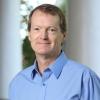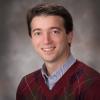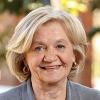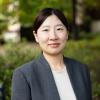Software Engineering

Software-intensive systems play a variety of critical roles throughout society: they support human decision making in medical, transportation, and legal domains and, over the coming years they will increasingly operate autonomously – without a human in the loop. The critical role that software plays means that individuals, organizations, and institutions must determine whether to trust that its operation is safe, secure, and fair. Using current approaches to developing software-intensive systems, it is essentially impossible to understand them well enough to make sound judgements about whether to trust them. This situation will only get worse as systems continue to increase in scale, complexity, and the diversity technologies used to build them. Through a new collaborative research focus, UVA Computer Science faculty from software engineering (SE), formal methods (FM), security, machine learning (ML), and cyber-physical systems (CPS) seek to address this challenge. Our department’s strength in formal methods and program analysis allows us to advance the state of the art in all these areas, ensuring that these systems operate correctly and securely.
Software Engineering Core Faculty

Matthew B. Dwyer
Matthew B. Dwyer is the Robert Thomson Distinguished Professor in the Department of Computer Science at the University of Virginia.

Sebastian Elbaum
Sebastian Elbaum is a Professor in the Department of Computer Science at the University of Virginia. His research aims to build dependable systems through domain-specific analysis techniques. He is an ACM Fellow and an IEEE Fellow. I am a founding member of the LESS Lab.

Lu Feng

Yonghwi Kwon

Chang Lou
Chang Lou is a tenure-track assistant professor in Department of Computer Science at University of Virginia. His research interests are distributed systems, operating systems, and cloud computing. His work centers on improving system reliability and availability.

Mary Lou Soffa
Mary Lou Soffa is the Owen R. Cheatham Professor of Sciences in the Computer Science Department at the University of Virginia, serving as the Department Chair from 2004 to 2012.

Kevin Sullivan
Kevin Sullivan obtained his background in computer science from Tufts University (1987), working most closely with David Krumme, and in graduate school at the University of Washington, working with David Notkin (MS, 1994, PhD, 1994).
Yuan Tian

Wenxi Wang
I completed my Ph.D. at University of Texas at Austin under the supervision of Sarfraz Khurshid. During my Ph.D., I also closely collaborated with Kenneth McMillan and Darko Marinov. Prior to my Ph.D., I earned an MPhil (a research master's degree) from University of Melbourne, where I was supervised by Harald Søndergaard and Peter J. Stuckey.


